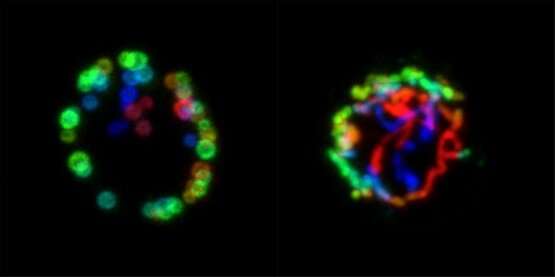T cell immunity in the elderly

A study by Monash Biomedicine Discovery Institute (BDI) expands the understanding of the molecular pathways that control T cell function and survival and how it relates to declining T cell immunity in the elderly.
The findings, published in Nature Communications, led by Monash BDI's Professor Nicole La Gruta and Dr. Kylie Quinn (formerly of Monash University BDI, now Vice-Chancellor's Research Fellow at RMIT University), outline that the increased metabolism of T cells observed with advanced age was an indication that they were working harder merely to survive.
This contradicts previous knowledge, which suggested an increased metabolism was indicative of T cell function, and will have implications for the development of targeted interventions such as vaccines or immunotherapies to treat age-related immune dysfunction.
T cells play an important role in the body's immune response to viral infections and tumors, but T cell immunity wanes as we age, thus increasing our susceptibility to these diseases.
"We've shown that an amped-up metabolism, rather than arming cells to fight pathogens better, is associated with T cell survival over a lifespan. The cells need to substantially increase their metabolism just to survive in the relatively hostile environment of the elderly," Professor La Gruta said.
"This work is important because one of the hallmarks of immune aging is the loss of T cells. So it provides clues on how we might promote T cell survival in the elderly, and so boost T cell immunity," Professor La Gruta said.
Dr. Quinn said the discovery supported further research to develop therapies and interventions that support metabolism during aging, to help our T cells survive and thrive.
"Ultimately we want to support healthy aging by designing ways to improve T cell metabolism during cell-based immunotherapies such as CAR T cell therapy, and boosting T cell activation in new vaccines," she said.
More information: Kylie M. Quinn et al, Metabolic characteristics of CD8+ T cell subsets in young and aged individuals are not predictive of functionality, Nature Communications (2020). DOI: 10.1038/s41467-020-16633-7



















